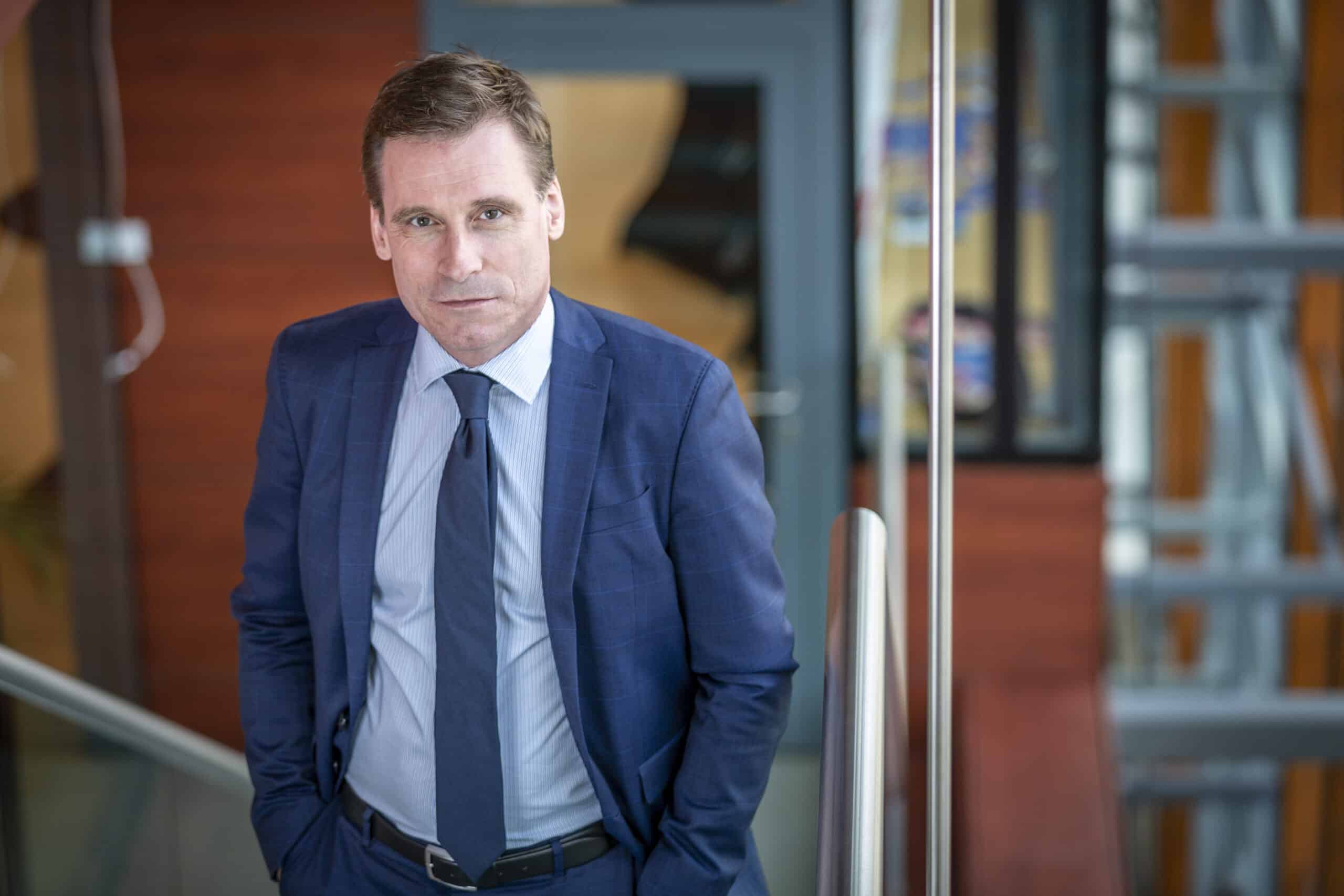Brussels – Water is a vital but finite and increasingly threatened resource. So much so that “it can no longer be one of the elements of the Green Deal,” but must have a dignity of its own, said Oliver Röpke, president of the European Economic and Social Committee, in an interview with GEA/Eunews on the sidelines of Civil Society Week, underway in Brussels.
Röpke, who came into office 10 months ago, promises to shake up the committee, which has “enormous potential,” because the moment is not easy and everyone’s voice is needed. These are “shaky times,” he repeats. The obvious impact of climate change, from droughts to floods, is not the only threat to water. Pollution is rampant, industry consumption is becoming more intensive, and aging infrastructure is causing senseless waste.
Therefore, the change of scale must be at the European level. Röpke stresses that it is “unacceptable that there are people in the EU who still do not have access to water and sanitation.” The EU has established legal frameworks to protect freshwater and marine resources but has not achieved many of its goals. Looking at a comprehensive approach, the EESC adopted a series of opinions addressing the water crisis in various dimensions, calling on European institutions to consider water as a strategic priority in the 2028-2034 planning period and beyond, integrated into all EU policies.
Gea/Eunews: What will change with the Blue Deal?
Röpke: There will be a comprehensive and coherent policy based on guiding principles and concrete actions. It is about anticipating needs and properly preserving and managing our water resources in the short, medium, and long term. Europe can turn water challenges into new opportunities for technological development, social progress, job creation, skills, and business growth while respecting the environment. It is time to join forces and find shared solutions to the systemic water crisis. Our collective action, supported by a strong and ambitious water strategy at the European level, is the only guarantee for a sustainable future.
G/E: The investment needed to build all the infrastructure will be huge. Do you have any idea of how much it will cost?
A: We are not talking about figures because we want to start with the rules and governance. We need data from individual countries, data coordinated by the European Union. We need strategies and action plans for infrastructure investments. There are already funds that, for example, come from cohesion policy. We want to make this more coherent with a Blue Transition Fund as a single access point for water investments and combine public investments with innovative financing.
G/E: How will environmental issues affect the June elections, considering that we are struggling to find a point of equilibrium between environmental and social sustainability?
A: It’s a real struggle. We observe a regression, a new hostility towards environmental transition policies, and also, unfortunately, in civil society. This is worrying because we cannot allow any backtracking on the ecological transition. We have to make sure that we meet the targets. But it is also true that the Social Deal is not fully considered. We are not surprised that there is growing resistance.
G/E: Rising energy prices, difficulties in supply chains, climate change. There is an uprising in the agricultural world, and it may not be alone.
A: Definitely not. Farmers are making more noise. However, they are not the only ones suffering in these difficult times. The ecological transition is also difficult for industry; investments in European industry are decreasing. And let’s not forget the citizens, the ordinary people, the workers, and the families suffering from the rising cost of living. We need investments or risk failing in the ecological and digital transitions.
G/E: You announced more youth involvement in the CESE. Will their voices also strengthen the battle for the environment?
A: Yes, it is always encouraging to have the perspective of young people. We’ve seen it at so many sustainability roundtables, but also at high levels like COP28. Young people are the most concerned because they are the ones who will live with the worst consequences of climate change in the coming decades. Our idea is to create a special body within the committee, a youth group, which we will propose as a permanent body.
English version by the Translation Service of Withub

![Una donna controlla le informazioni sul cibo specificate sulla confezione [foto: archivio]](https://www.eunews.it/wp-content/uploads/2014/12/Etichette-alimentari.jpg)

![Ursula von der Leyen. La presidente uscente della Commissione europea cerca l'inizio del secondo mandato con il voto del Parlamento europeo alla squadra di commissari [foto: European Commission]](https://www.eunews.it/wp-content/uploads/2024/11/vld-2411-350x250.jpg)





